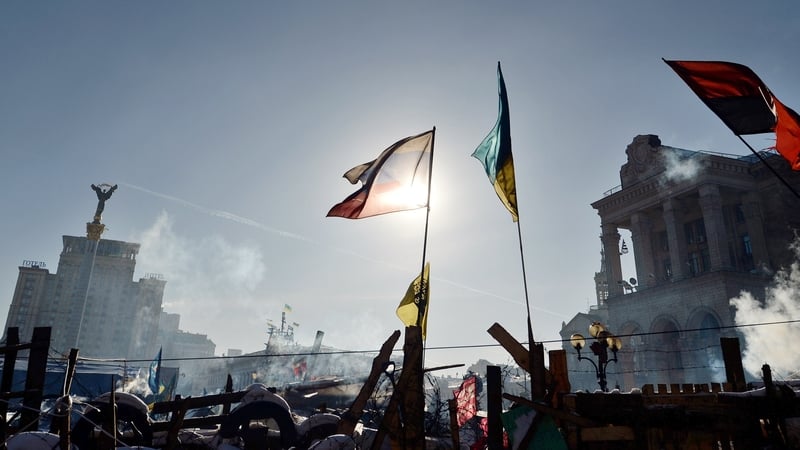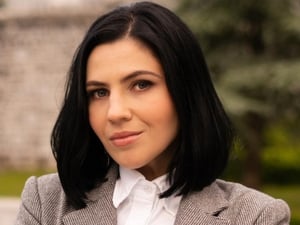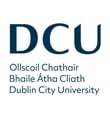Analysis: the events of a decade ago continue to influence the development of Ukraine and are deeply entwined with Russian military aggression
Earlier this month, the European Commission supported the start of accession talks for Ukraine. This represents a continuation of the aspirations expressed by Ukrainians a decade ago, when significant changes in Ukrainian society occurred as a result of huge demonstrations regarding their will to join EU.
This month marks the tenth anniversary of the beginning of Maidan (Euromaidan, Revolution of Dignity) in Ukraine, an activist movement against the anti-democratic policies of the pro-Russian government. The events of a decade ago continue to influence the development of Ukraine and are deeply entwined with Russian military aggression.
We need your consent to load this rte-player contentWe use rte-player to manage extra content that can set cookies on your device and collect data about your activity. Please review their details and accept them to load the content.Manage Preferences
From RTÉ Radio 1, Death of An Empire looks at the fall of the Soviet Union
After the collapse of the Soviet Union and the restoration of Ukraine's independence in 1991, the state began to reconstruct political, social and economic systems and a distinct cultural identity. Used to being the centre of leadership decisions during the Soviet era, Russia did not give up its attempts to regain power over Ukrainians, using various methods of indirect influence.
One of these ways was to sponsor and support pro-Russian parties and movements. Viktor Yanukovych, the leader of one of them, became president of Ukraine in 2010, with the help of Moscow. Along with his accomplices, he than began to implement undemocratic policies, restrict freedom of speech and promote corrupt practices.
We need your consent to load this YouTube contentWe use YouTube to manage extra content that can set cookies on your device and collect data about your activity. Please review their details and accept them to load the content.Manage Preferences
From Hromadske, the 2013 rally that turned into a revolution
Prior to this, Ukraine had been gradually moving towards joining the European Union, and the new government did not initially change course. However, it was soon obvious that it was moving to closer cooperation with Russia. On November 21st 2013, the Yanukovych government issued an order to suspend the process of preparing for the conclusion of the Association Agreement between Ukraine and the EU.
This event became a trigger for demonstrations in Kyiv's main square, Maidan, as well as in other cities. Hundreds of thousands of people marched every day to show their position. The ruling regime soon tried to force people to leave the camp they had set up on Maidan. Failing to succeed, authorities began harsh detentions and unlawful persecution of activists, culminating in the shooting of people right in the centre of the capital. Despite the danger to their lives, the protesters continued to fight for their rights. After three months of demonstrations, they eventually won and Yanukovych and people from his inner circle fled the country.
We need your consent to load this YouTube contentWe use YouTube to manage extra content that can set cookies on your device and collect data about your activity. Please review their details and accept them to load the content.Manage Preferences
From BBC News, what happened in Kiev's Maidan square in February 2014 when more than 50 anti-government protesters were shot dead
The actual consequences of the victory of the Maidan were the democratisation of public power, a return to the path of European integration, and positive (though incomplete) transformations in the fight against corruption. The most important change was development of civil society - the change in Ukrainian community itself, when people united very strongly in the face of a perceived existential threat to Ukrainian prosperity and independence.
The events of Maidan showed Russia that it would not be possible to renew a puppet regime in the near future. Instead, they launched a military invasion of Crimea and the Donetsk and Luhansk regions of the East of Ukraine in early 2014. These territories were still occupied by Russia when they undertook a full-scale invasion of Ukraine in 2022. There is a clear relationship between the waning influence of Russia on Ukrainians and the Russian's willingness to use violence to achieve their objectives.
We need your consent to load this rte-player contentWe use rte-player to manage extra content that can set cookies on your device and collect data about your activity. Please review their details and accept them to load the content.Manage Preferences
From RTÉ Radio 1's Morning Ireland in 2014, Ukrainian MP and former footballer on the future for Ukraine after the ousting of former president Viktor Yanukovych following violence and fatalities in Kiev
However, Ukrainians remain resolute in their fight to achieve their objectives. Alongside the military successes and bravery that have defined Ukraine’s fight against the Russian invaders, grassroots activism and cooperation have defined Ukraine’s post Maidan period.
To understand the forms and motivations for Ukrainian activism, researchers from the Corruption, Gender, and Sustainable Development project, funded by the Irish Research Council, surveyed Ukrainians across Europe. From the survey responses we can see the continued influence of the Maidan protests 10 years ago. The results show that over 50% of respondents have been involved in social or political activism, with cultural activism being the other most widespread type of activism (20%). 30% of respondents had experience in multiple types of activism.
For many of them, it's clear that the Maidan events were the push for activism, as well as the Russian military aggression against Ukraine. For example, people highlighted "Maidan", "Revolution of Dignity in 2014 and the Russian-Ukrainian war", "the war since 2014 and the events that led to it" and "the Russian-Ukrainian war that has been going on since 2014" as their reasons to be involved. History matters and the moment that Ukrainians stood together to demand more from their government continues to shape Ukraine, and the world.
The views expressed here are those of the author and do not represent or reflect the views of RTÉ


